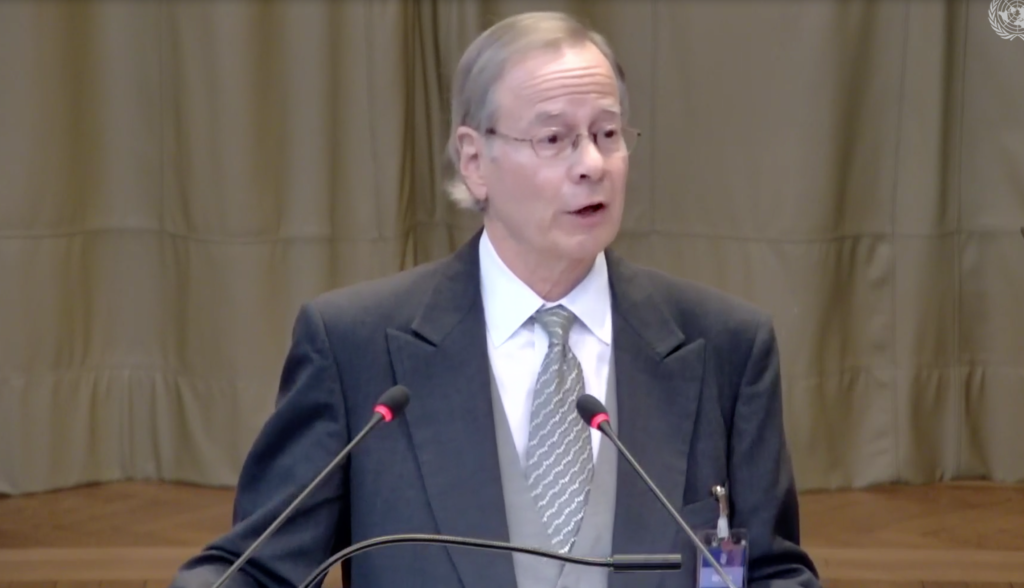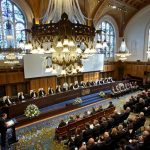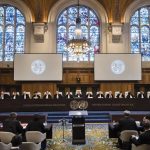
Guyana’s legal representatives told the International Court of Justice this morning that there is still time to stop Venezuela, as they laid evidence before the Court of an active plan by the Spanish speaking country to unlawfully annex Guyana’s Essequibo Region.
In support of its application for provisional measures to block Venezuela from proceeding with its December 3, Referendum in its current form, Guyana, through its legal team, told the panel of Judges that the measures would prevent “incalculable and irreparable injury” to Guyana’s territorial integrity. But he stressed, that the Court must act now before it is too late.
Internationally recognised Legal Counsel, Paul Reichler, who formed part of the battery of lawyers representing Guyana, provided the ICJ with a batch of evidence, comprising newspaper articles, video recordings, and statements issued by the President of Venezuela, Nicolas Maduro, the Minister of Defense for the National Armed Forces of Venezuela, Vladimir Padrino Lopez and Colonel Juan Gutierrez Ortiz, of the country’s plan to seize control of two-thirds of Guyana’s territory and reject the Court’s authority to resolve the controversy.
“Venezuela has made clear that after the referendum, it will count on its armed forces to defend its annexation of its new state of Guyana Esequiba. Military preparations have already begun,” Reichler said while adding that “Venezuelan armed forces are now constructing a military airfield to carry out the government’s plans for the Essequibo Region of Guyana.”
Noting that Venezuela’s referendum is a textbook example of annexation, Reichler submitted to the Court that unlawful annexation is an infectious disease like Polio, which was once thought to have been eradicated but has reemerged.
He said what is different in this particular scenario is that the Court has jurisdiction, and has enough time to stop the unlawful intended annexation from occurring.

“There is no doubt about the court’s jurisdiction, let alone prima facie jurisdiction following the judgment of 18 December 2020, confirmed by that of 6th April 2023. There is no question about the plausibility of Guyana’s rights to the territory at issue here, its rights are based on a unanimous arbitral award, a demarcation agreement signed and ratified by Venezuela and Venezuela’s longstanding acceptance and acknowledgement that the territory belongs to British Guiana. Nor can there be any uncertainty about the irreparable prejudice that would befall Guyana’s rights if Venezuela were to unilaterally reject the arbitral award, reject and ignore the court and its judgments and proceed to formally incorporate the disputed territory into itself,” the Lawyer submitted to the Court.
Underscoring the urgency of the matter, Reichler submitted that, in less than three weeks, the referendum, if allowed to continue in its current form, could trigger the execution of Venezuela’s annexation as planned.
He said there is sufficient evidence before the court to issue the provisional measures, which address three of the five questions listed in the referendum.
Reichler appeared before the Court alongside fellow Attorney, Professor Alain Pellet and Guyana’s Agent, Carl Greenidge.
Guyana’s Attorney General, Anil Nandlall also formed part of the Guyanese delegation at the Peace Palace in The Hague.
Tomorrow, Venezuela will submit its oral arguments before the Court.



















You must be logged in to post a comment Login